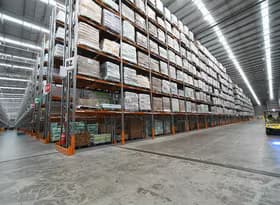
Media Release: Shadow of recession spreading across domestic economy
New Zealand’s economy might just be able to avoid a recession this year, according to the latest forecasts published by Infometrics, but the bulk of the economy will feel like it is going through a contraction anyway. Economic growth will only remain in positive territory thanks to the impending revival of the tourism sector, and profitability for domestically focused businesses will be heavily eroded by continued cost pressures and a drop-off in revenue as consumers go into their shells.
“Households are coming under massive pressure from rising interest rates, a housing correction, and an inflationary squeeze on their budgets,” says Infometrics Principal Economist Brad Olsen. “We estimate that the average mortgage rate currently being paid by households has increased from 3.0% to 4.2% since August last year, but it will climb to 5.7% by the second half of 2024 as homeowners face refixing at substantially higher rates. The Reserve Bank’s late start in tightening monetary policy will continue to weigh on the domestic economy for the next two years.”
Infometrics expects inflation to take longer to get back within the Reserve Bank’s 1-3%pa target band, and is forecasting inflation to still be over 6%pa at the end of 2022, above 4%pa at the end of next year, and over 3%pa in December 2024. Some of the inflationary drivers, such as supply chain disruptions, high energy prices, and elevated shipping and freight costs are beyond the Reserve Bank’s control.
Even so, the wide imbalance between demand and supply needs to be shrunk before inflation will be brought back under control. Domestic-based inflation remains high, and a key driver of sustained higher inflation. Unanchored inflation expectations continue to challenge New Zealand’s ability to shut inflation down swiftly.
“The economy is trying to do too much with too little, and demand needs to reduce closer to what the economy can supply, if we’re to limit price increases to more manageable levels,” says Mr Olsen. If the supply issues become more permanent, there is an even greater need for monetary policy to tighten further to ensure that aggregate demand is brought back in line with the economy’s capacity to supply.
“Tourism will drive a temporary and uneven bounce in economic activity over the coming summer months and push GDP growth to 2.8% for 2023,” says Mr Olsen. “But even this patchy growth will not be without its challenges. The rebound in visitor numbers could be hampered by a faltering global economy and high fuel prices. And the tourism sector could struggle to meet the lift in demand given the lack of available workers right across the economy, continuing limited access to staff from overseas, and the flow of young Kiwis heading offshore.”
By the end of 2024, Infometrics expects economic growth to have slowed to 1.6%pa as demand consolidates to more sustainable levels. An unemployment rate back at 4.0% will indicate a less critically stretched labour market, and the Reserve Bank will be able to start reducing the official cash rate. “Over the next two years, the risks of a wage-price spiral with limited economic growth are real,” says Mr Olsen. “The response of even higher interest rates by the Reserve Bank would leave the domestic economy suffering a very prolonged hangover from the Covid spend-up of the last two years.”
ENDS














